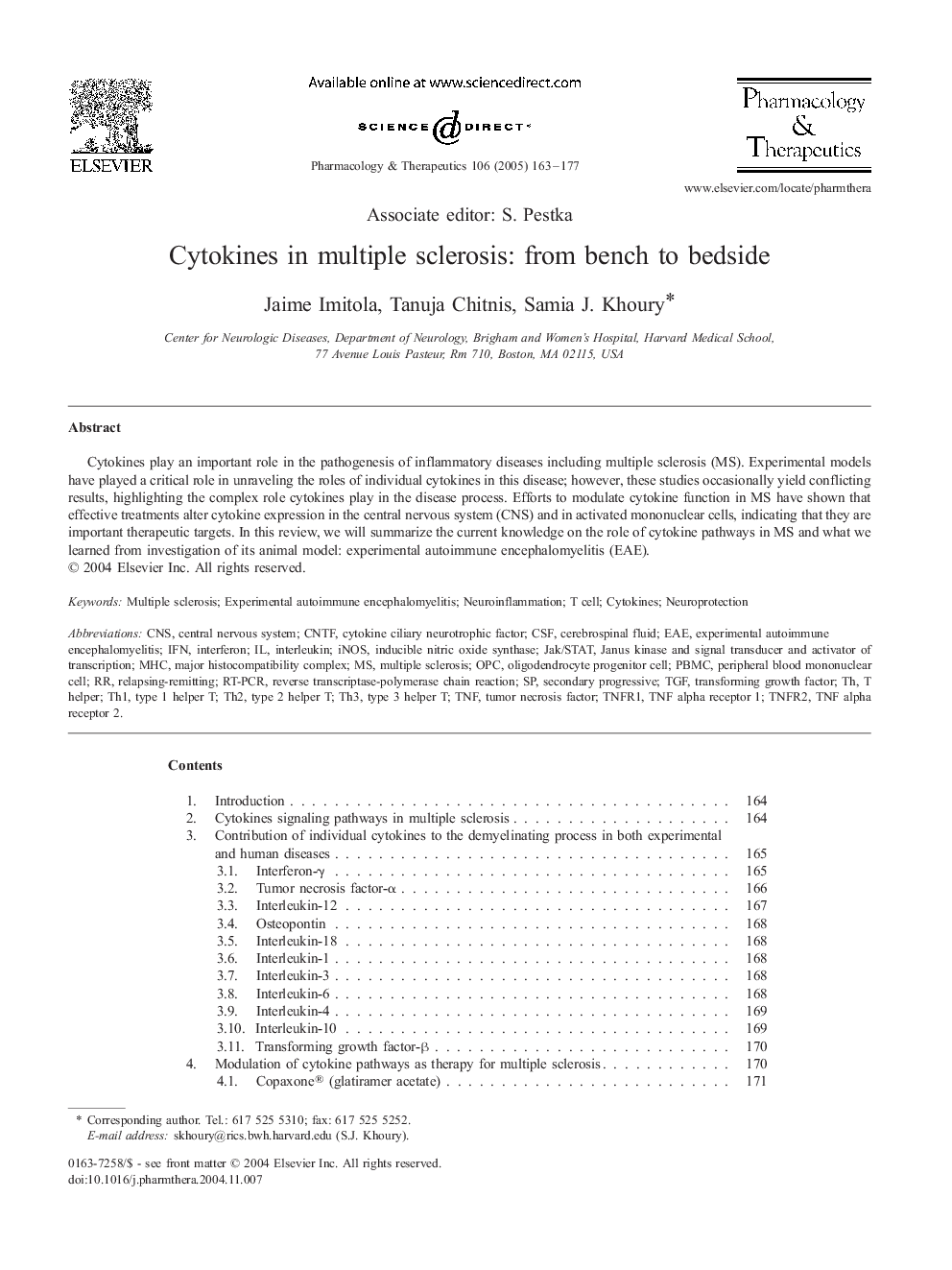| Article ID | Journal | Published Year | Pages | File Type |
|---|---|---|---|---|
| 9015895 | Pharmacology & Therapeutics | 2005 | 15 Pages |
Abstract
Cytokines play an important role in the pathogenesis of inflammatory diseases including multiple sclerosis (MS). Experimental models have played a critical role in unraveling the roles of individual cytokines in this disease; however, these studies occasionally yield conflicting results, highlighting the complex role cytokines play in the disease process. Efforts to modulate cytokine function in MS have shown that effective treatments alter cytokine expression in the central nervous system (CNS) and in activated mononuclear cells, indicating that they are important therapeutic targets. In this review, we will summarize the current knowledge on the role of cytokine pathways in MS and what we learned from investigation of its animal model: experimental autoimmune encephalomyelitis (EAE).
Keywords
EAETNFTh3TNFR2Th2Th1T helperTGFTNFR1OPCiNOSRT-PCRCNTFPBMCJAK/STATexperimental autoimmune encephalomyelitisNeuroinflammationinterferonIFNinterleukintransforming growth factorrelapsing-remittingCNSPeripheral blood mononuclear cellT cellOligodendrocyte progenitor cellinducible nitric oxide synthaseCytokinescentral nervous systemtumor necrosis factorCerebrospinal fluidCSFmajor histocompatibility complexMHCNeuroprotectionMultiple sclerosisReverse transcriptase-polymerase chain reactionsecondary progressive
Related Topics
Health Sciences
Pharmacology, Toxicology and Pharmaceutical Science
Pharmacology
Authors
Jaime Imitola, Tanuja Chitnis, Samia J. Khoury,
